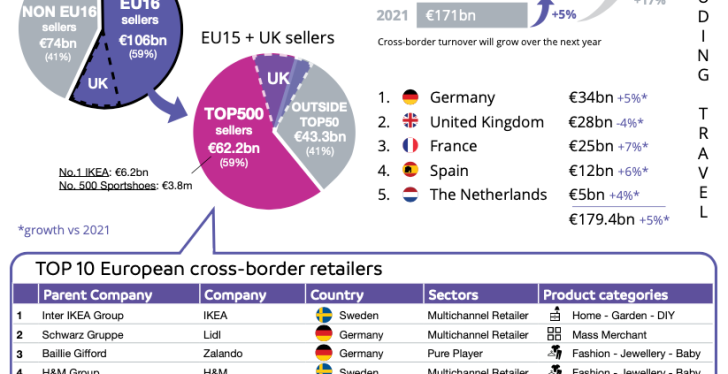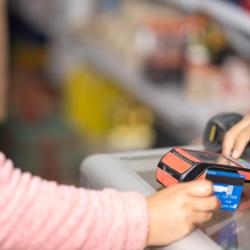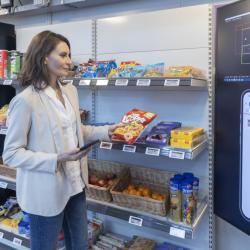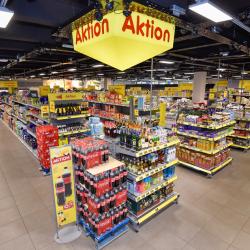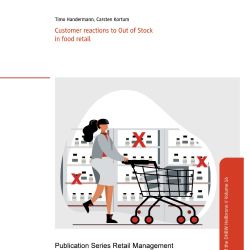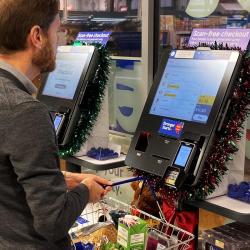Aldi and (e-)commerce in China
How the discounter is positioning itself in East Asia and what others can learn from it
Aldi Süd
"China is a highly competitive market," says Renata Thiébaut. Nevertheless, the company, headquartered in the Ruhr region, seems to have shown elbows and is now selling successfully there. The professor of e-commerce and China expert at GISMA University for Applied Sciences worked as a consultant for Aldi from 2017 to 2021. She was there when the company entered the market and looks back with us.

Renata, in Europe, Aldi is known almost exclusively as a stationary food retailer. Now the company is also putting out feelers in China. But the competition there is fierce, isn't it?
All the big supermarkets and retailers are there: Cosco, Walmart, Mantra. So when Aldi entered the market, the first thing it had to consider was: What do our customers want and how can we stand out from our competitors?
Aldi oriented itself in the direction of e-commerce. You were involved in the strategic considerations. How did you approach the implementation?
Exactly, for two years the focus was on online. This is where you meet the majority of potential customers. During this time, the company wanted to find out what makes consumers tick. With the help of an online store and the Alibaba platform, we first wanted to explore the market, understand the needs of consumers and also find out how we could position our quality and, at the same time, our low prices compared to the competition on the Chinese (online) market. In addition, the aim was to adapt the product range – also in terms of taste – to the Chinese clientele. We also worked with local experts to find out where brick-and-mortar stores would be worthwhile.
And the concept also won an innovation award from the Alibaba Group. What was so special about it?
It was a very different approach than Aldi takes in Europe. Otherwise, it's primarily a matter of planning the product range and positioning itself as broadly as possible with (its own) products. We said goodbye to this routine approach because we didn't know whether the goods would even be wanted. So in the first store, which opened in 2019, we focused on digitization and implemented a SaaS system. With the help of various touchpoints in the store, we were able to better measure customer behavior and have been able to gather a lot of information about our consumers. We did the same online via the Alibaba platform and social media.

How exactly did you collect the data?
In the system we built, we collected data from the Alibaba database. This is available to all retailers. Here you can access industry data and data on consumer behavior, e.g. milk sales on Alibaba marketplaces in units sold and revenue per month, top-selling milk types, top-selling sizes, top-selling products by price category, and more. Aldi's own data for this, as I said, came from its online store, in-store and social media. We brought all this data together to better understand purchase decisions and consumer behavior.
What were you able to find out about customer behavior this way?
For example, most retailers offer milk in one-liter packs. Through our data analysis, we found that 80 percent of Chinese customers prefer the 250-milliliter version because it's easier for them to carry the carton with them all day. So we have adapted our milk range. We have also largely abandoned our own brands, as they are not perceived as such in China, but appear new and compete with other already well-known local brands.
Instead, we have found out which imported brands are particularly in demand and have added these to our range. Aptamil infant formula, for example, ended up at Aldi. Another result: Aldi offers delivery within 25 minutes. This means that they are undercutting their competitors.
I have to say that this adaptation to the needs of our customers is made possible by the data we constantly collect at the various touchpoints. I think this development would hardly be possible otherwise.
There are similar approaches at discounters in Europe, but here things are still much more analog. Why is that?
Age plays a role here. From Germany, for example, I keep hearing that technological progress is stalling because of the aging population. However, I don't believe that this is the decisive factor, because older people live in China, too. They have learned to use innovations for their own benefit. Almost 95 percent of the population moves online. Alipay and WeChat are used by 1.3 billion people in the country, including the elderly. China is about five years ahead of other countries here.
So it's about creating systems to digitally pick up older people as well?
Exactly, tools that are easy to use. That could work, in my opinion, in other markets as well: Shared accounts are one possibility here. Older parents and children can share an account, for example. You can do that with WeChat or Alipay. That's how you reduce potential concerns and barriers here.
Do you think the West will eventually catch up with China in terms of payment options?
I'm afraid that the data protection regulations will actually make that difficult. In China, you can pay via facial scan or with the palm of your hand, even if you want to ride the subway. I find that hard to imagine in Germany or Europe. Nevertheless, one gets the impression that the Chinese want to learn, especially when it comes to omnichannel and the optimal customer experience.
The convenience of customers also plays a role in these topics. Perhaps even a bigger one than the desire for privacy. Could we even see a softening of privacy policies in the future?
I don't think so. People still place a very high value on their privacy, even digitally. They don't want to give away their personal data. But in principle, one does not exclude the other. There are definitely store and payment concepts in Western regions that are similar to those in China. The most important thing for all retailers is still: find out what your customers want, and that's how you'll be successful.



